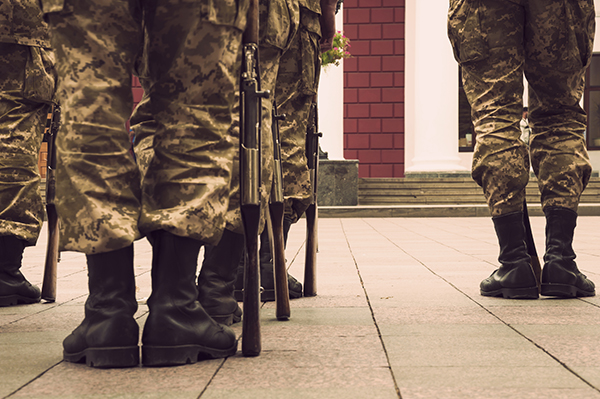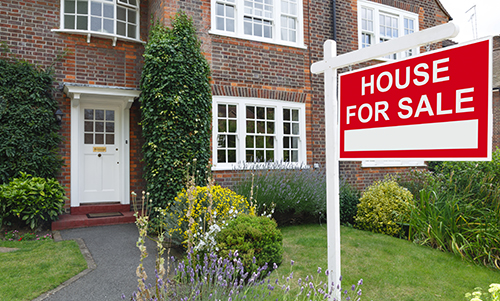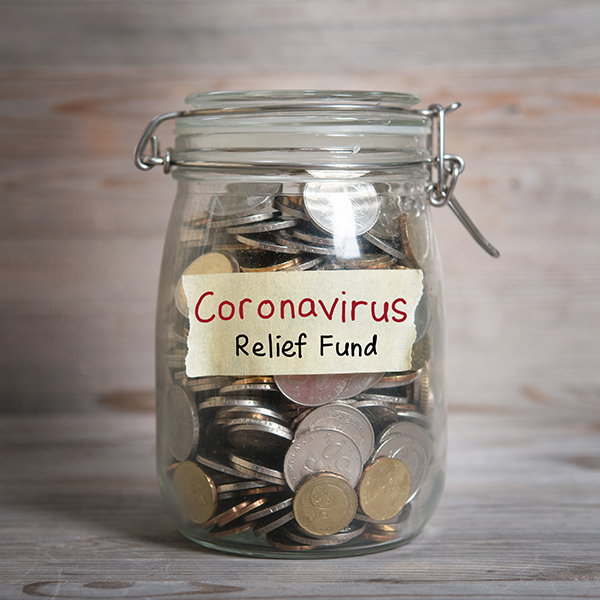Juneteenth 2020 a celebration and a call to action
For Black community organizers in Seattle
Posted on July 20, 2020
 In recent days, TraeAnna Holiday, among others, has been busier than ever, organizing a Juneteenth rally and march in Seattle in just two weeks.
In recent days, TraeAnna Holiday, among others, has been busier than ever, organizing a Juneteenth rally and march in Seattle in just two weeks.
Juneteenth, which commemorates the end of slavery in the U.S., has been observed by African Americans since the late 1800s as a celebration of freedom and resilience. It marks the day — June 19, 1865, about two months after the end of the Civil War and two years after the Emancipation Proclamation — when enslaved African Americans in Galveston, Texas, were informed that they were free.
The holiday celebrates what Black Americans have accomplished despite systemic inequalities and struggle. This year is no different, even though everything else is. In 2020, Black people are still fighting to be seen as equal under the law.
With protests ongoing nationwide in the wake of George Floyd’s killing by Minneapolis police, some Black community organizers see the chance to home in on the message that Black lives matter and get more people involved in the push toward racial justice.
“There’s a lot of eyes on Black people right now, and not in the same way there has been historically,” said Holiday, a community organizer with Africatown Community Land Trust, which works to empower Black residents by fostering land ownership in the Seattle area. “Now people are finally starting to wake up and realize that they haven’t been doing enough.”
Some of the usual Juneteenth community events — barbecues, family gatherings — won’t be happening this year because of the coronavirus pandemic, which has disproportionately ravaged Black and brown communities. But local groups have organized events, from online programming, to a Juneteenth Blackout at the CHOP, the Capitol Hill protest zone, for for Black healing and community, to nonviolent civil disobedience training, to the rally that Holiday is helping put on.
The Juneteenth Freedom March — organized by the King County Equity Now Coalition, of which Africatown Community Land Trust is a member — begins at 2 p.m. Friday at DeCharlene’s Beauty Salon at East Madison Street and 22nd Avenue East and ends at Jimi Hendrix Park at 23rd Avenue and South Massachusetts Street.
The march, which winds through significant Black landmarks in Seattle’s Central District, was created in part to educate attendees on the cultural significance of the area to the Black community.
“We want people to walk away from our event with a sense of understanding,” Holiday said.
Another thing that Holiday hopes the Juneteenth events and other protests will help people see: “Whether you’re Black, white or in between, people need to understand that equity is not happening in this country,” said Holiday.
The Northwest African American Museum (NAAM), meanwhile, has been creating programming with other Black museums across the country. Coronavirus has limited the ways the museum can be part of Juneteenth, but it has allowed the Seattle museum to work with institutions residents may not otherwise have access to.
The museum programming, available on blkfreedom.org, focuses on the 13th, 14th and 15th Amendments. According to LaNesha DeBardelaben, executive director at NAAM, it raises questions such as: What should justice and equity look like in our society today? What will you do for your freedom? Why does voting matter?
But the idea of celebrating Blackness is obviously not new: NAAM, along with other Black organizations in Seattle, has been educating and promoting racial justice for years.
“I think people keep forgetting during this time that Black people stay doing the work,” said Elisheba Johnson, co-founder of Wa Na Wari, a home in Seattle’s Central District that’s been turned into a cultural center celebrating Black arts and community.
“When you’re constantly working for social justice, you have to stay ready so you don’t have to get ready. It wasn’t a big conversation for us to have programming around Juneteenth, it was a natural embodied thing for us. It’s our Fourth of July.”
Even during a pandemic, the need to build upon the movement to fight systemic racism and support Black lives is too important to not do something, Johnson believes.
So Wa Na Wari is hosting virtual celebrations for Juneteenth. It’s partnering with LANGSTON, a nonprofit Seattle organization that cultivates and showcases Black arts and culture, to create 2(06) The Break, a seven-episode series that focuses on local DJs and the legacy of Black hip-hop. A special edition of the show airs on Juneteenth.
Wa Na Wari has constantly been creating events for the Black community — this one is no different. But the new interest in the Black Lives Matter movement, and the surge of donations Wa Na Wari has received during this time, certainly are.
“There are so many people I know that are super skeptical [of the new interest] right now. But I do believe this time is different. There’s people that have been newly radicalized,” said Johnson. “The initial support that’s happening right now for all Black organizations and businesses is great, but we also need people to shift from a temporary justice framework to an ongoing justice framework.”
Like so much of the anti-racism education that has been happening during this time, the brunt of the efforts for this year’s Juneteenth falls on the Black community, said Tim Lennon, the executive director of LANGSTON.
“I think that far from a holiday, Juneteenth is going to be a day when a lot of Black people are putting in a lot of work,” said Lennon. “There are folks that are out on the literal front line, occupying spaces, confronting The Man face to face, but because of coronavirus and the ways it disproportionately affects Black folk, there are some that can’t be out there. And they’re putting just as much labor on the internet.”
LANGSTON has partnered with several other Seattle organizations to create “We Out Here Seattle,” a virtual festival to celebrate and honor Black excellence in the Seattle area.
Even though Juneteenth is a celebration, some say the freedom the holiday celebrates is still elusive.
“Not a week goes by, even in quarantine, that we don’t see people that look like our family members being killed by city employees, and those people not getting treated under the fairness of the law like any other human could,” said Lennon. “We’re supposed to be free and we’re trying to get the government to equally apply their laws to us 155 years later.”
To top it all off, Juneteenth is still not a national holiday, though there have been attempts and petitions to make it so.
“I think it’s crazy that we, nationally, get the day off of work for Christopher Columbus,” Lennon said. “But I don’t think that this country has ever wanted to acknowledge nationally the struggles and the accomplishments of nonwhite folks. I just don’t think America is ready for that. They’re still telling us to get over it while waving their Confederate flag.”
And the work continues, even on this day of celebration.
“Juneteenth is the day that the enslaved found out they were free even though they were already free,” said Wa Na Wari’s Johnson. “And in this moment, so many years later, we’re still fighting for liberation.”
Seattle Times staff reporter Elise Takahama contributed to this report.
Natachi Onwuamaegbu: natachionw@gmail.com; Natachi Onwuamaegbu is a freelance reporter and a former Seattle Times intern.
SEE ALSO:
More Race Relations Articles
Sexual Bias Articles
Mental Health Articles
How Drugs and Alcohol Affect the Brain and Body
WA. Counselor Directory: find a therapist near you
How helpful is this web page to you?
(and how can we can improve this page for you?)
not helpful
very helpful
Other Articles
Race in America: policing, kneeling
Letters to the Editor, Northwest Voices, Opinion
Change policy culture “How police unions became such powerful opponents of change” [June 6, Nation), misses options to change police culture before officer contact with a union. The polic... read more
Keep up the fight:
Help pass the Justice in Policing Act
In the weeks following the killing of George Floyd, communities across Washington and throughout the country have stood up and powerfully spoken out — protesting, demanding accountability and fighting... read more
Black homeowners face discrimination in appraisals
Companies that value homes for sale or refinancing are bound by law not to discriminate. Black Homeowners say it happens anyway.
Abena and Alex Horton wanted to take advantage of low home-refinance rates brought on by the coronavirus crisis. So in June, they took the first step in that process, welcoming a home appraiser into the... read more
Percentage of Black residents in Seattle is at its lowest point in 50 years
For Seattle, the 2010s were transformative, and not just in terms of population growth. As the cost of living skyrocketed and gentrification spread across the city, many neighborhoods were fundamentally chan... read more
I do not want any help from your kind
Being a doctor while Black
Throughout my medical training, there were situations of patient’s refusing treatment based on the color of my skin, even in emergencies. One night, in Charlottesville, Virginia, the buzzing of the... read more
$40 million relief fund for undocumented immigrants
After months of talks with immigrant advocates, Gov. Jay Inslee is setting up a $40 million relief fund for people who can’t access federal stimulus programs because of their immigration status. Th... read more







